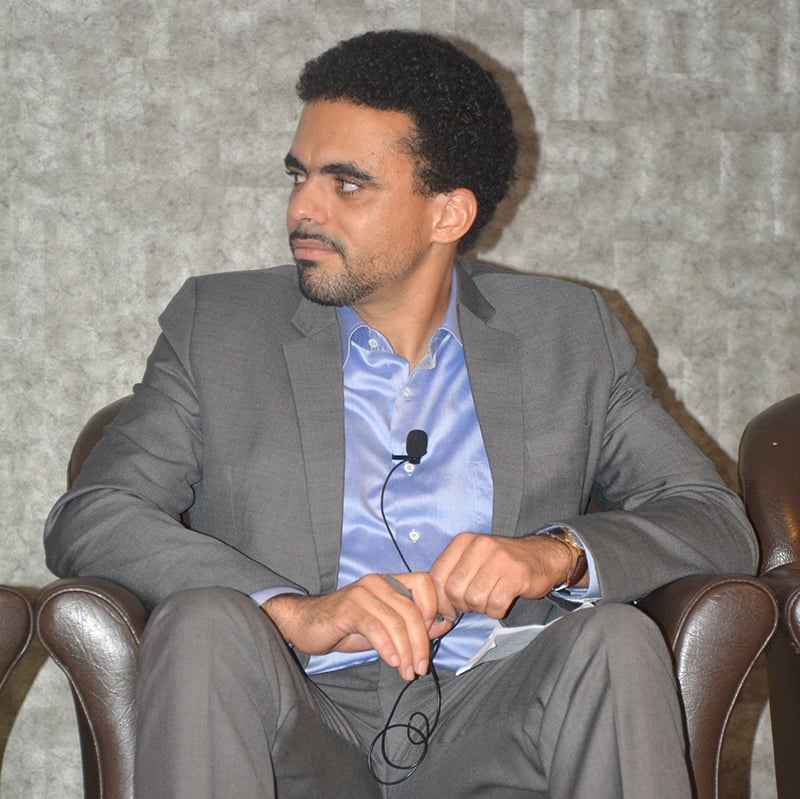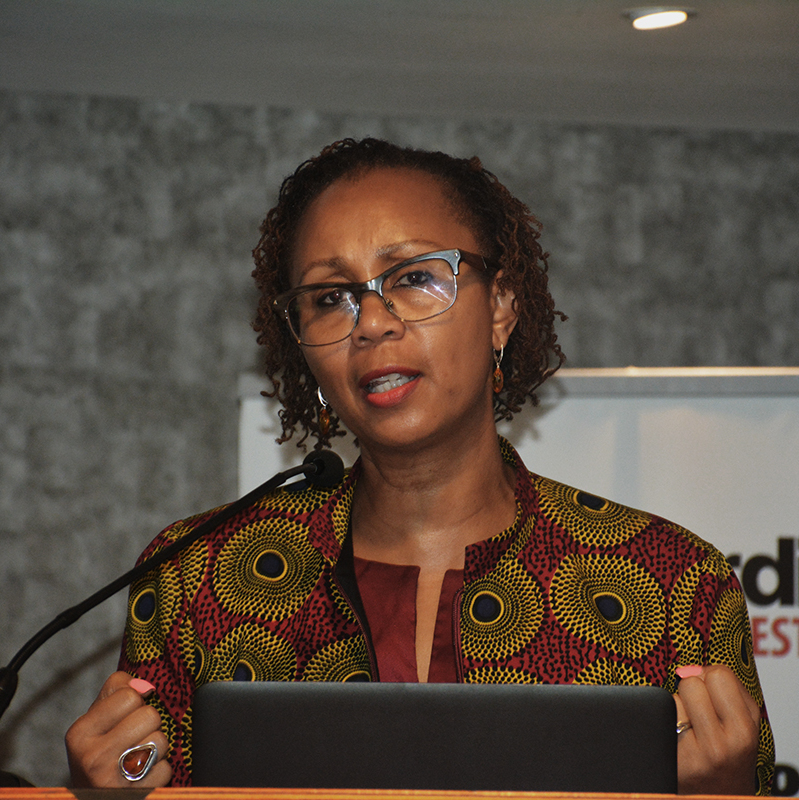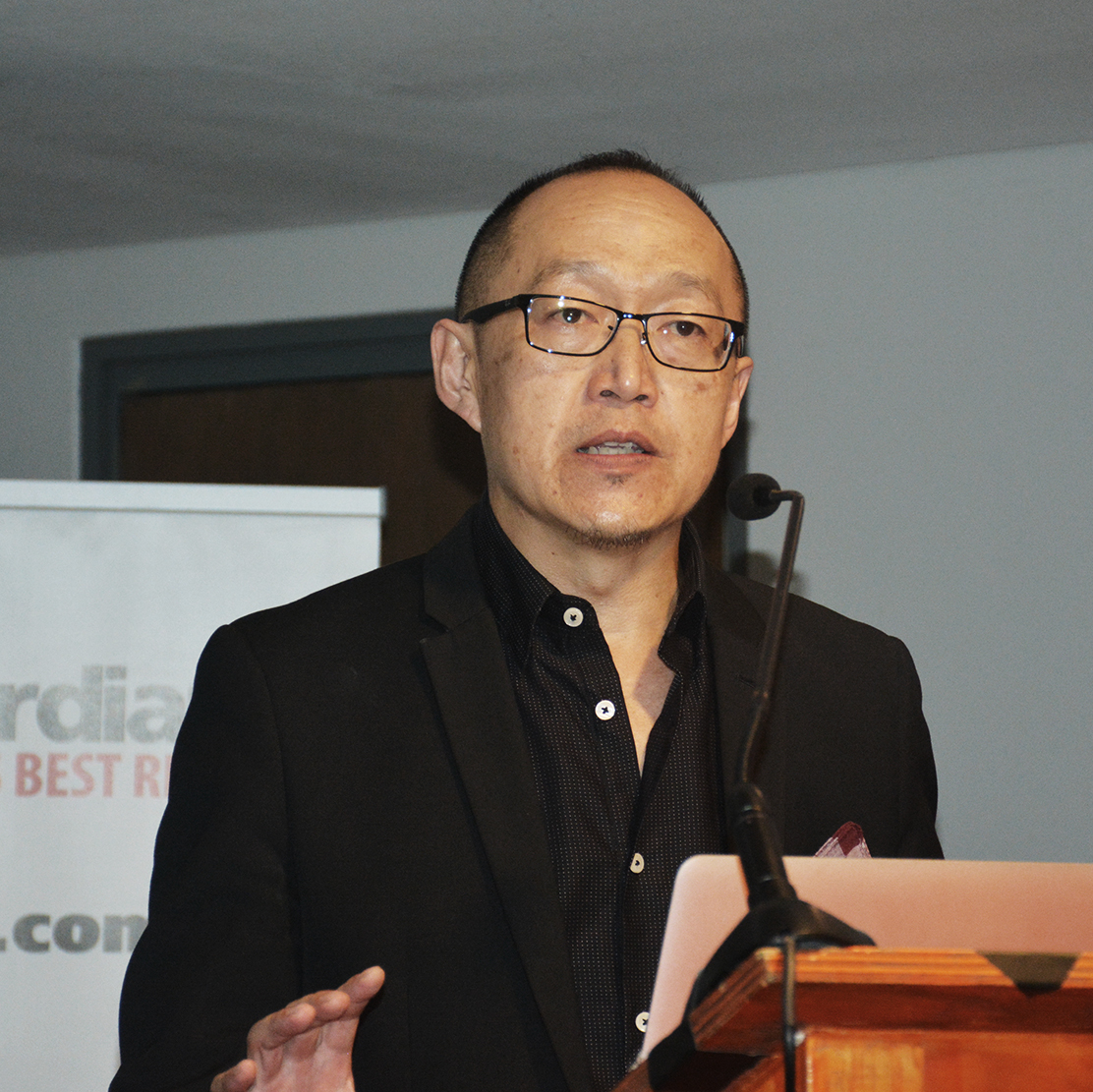Moving into Dance performs at the Drivers of Change Awards during the Summit. Photo: Elvis Ntombela
The Southern Africa Trust, in partnership with the Mail & Guardian, held their inaugural Drivers of Change Summit on March 2, focusing on social inclusion and sustainable development in the social space.
The day-long summit was an opportunity for social innovators to share experiences and network with each other, as well as with those in the business of improving development systems. The mix of personal stories of struggle and success in the sustainable development space with the technical know-how of impact investors and funders made for an energetic exchange of ideas.
Executive director of the Southern Africa Trust, Bheki Moyo, hoped the summit would help to build a network of social innovators who could draw on ideas of what strategies work best for overcoming poverty in the region.
During the summit it was strongly emphasised that solutions to developmental challenges are found in the same communities where the challenges are found, and that social interventions should support local solutions rather than have outside players dictating the process.
This represents a move away from a top-down approach, where funders impose systems and solutions that don’t work in that context. Solutions to developmental challenges need to take into account not just individual challenges, but the circumstances that make them difficult to solve. Often these suggested solutions do not take into account contextual challenges such as lack of infrastructure and resources, which makes modelling solutions on local initiatives critical.
“A lot of projects are still top-down. But there are initiatives among communities that are doing their own things, for example community savings schemes, stokvels, and other community initiatives across Africa,” said Moyo.
Social entrepreneurship
Kerryn Krige, senior programme manager of the Network for Social Entrepreneurs at the Gordon Institute of Business Science, drove the point home, saying: “Stop walking into communities and telling them what they need. Our role is capacitate what they say they need. We have to shift away from wanting to ‘change the world’. You’re not there to change the community. You’re there to enable the next step in the process”.
Social entrepreneurs were encouraged to support local communities by addressing barriers to entry — especially for women — as well as structural barriers to ensure jobs, skills and a growing economy. According to Robert Rhodes, director of the USAIDS regional environment, education and democracy office, South Africa is showing a unique development of social entrepreneurship as a driver of social transformation. Strategies such as workforce development projects, targeted education and job placement have proven to be highly impactful models in the country.
This was encouraging news for social enterprises such as Umbacreate, an incubator that works to empower women by providing them with seed money and system support for their small businesses. Co-founder Kudzai Sakajero started the business not as a business, but as a passion project, and almost went broke. With a grant from the US African Development Foundation (USADF) she registered the business formally two years ago, and now supports 50 companies.
“We don’t want to be donor funded for life. We get a kick off from a grant like we did from USADF. From there, programs must be self-sustaining and generating income. We want to get to a place where we’re venture capitalists,” she said.
Sakajero appreciated the holistic nature of the summit, saying that despite its academic sounding title, she gained a lot of practical advice from delegates and panelists from various NGO, academic, investment and government spheres.
Community first
Deputy minister of social development Hendrietta Bogopane-Zulu emphasised the importance of recognising family as the first social circle from which sustainable development and social inclusion can take place. Sakajero said this spoke to the social struggles she faced with the dominance of male figures in the lives of the women she works with, and sparked some ideas on how to deal with them.
“I’m dealing with women who get seed funding but are always dealing with gender-based constraints. We give them the money, but the husband probably has a say. So we plan to call all the women’s male support systems for a casual social get together and tell them how the women’s success are their successes and make them feel more part of the program,” Sakajero explained.
The move towards community-focused, qualitative strategy is also starting to emerge in business – albeit very slowly.

Pascal Fröhlicher, impact investor and entrepreneur at Focal Growth says: “While we have made progress with regards to specific developmental goals, we still don’t grasp the complexity of developmental challenges and often come with preconceived notions in terms of what the actual issue is”.
“Also, we haven’t been able to include all the key partners in the efforts to address social issues and specifically align their interest. Business has been slow in playing a part in addressing social issues.”
Fröhlicher highlighted that social enterprises also need to view themselves as businesses in order to be sustainable and to create meaningful social impact. By thinking as businesses, enterprises are forced to provide a product or service that is actually needed. However, he also emphasised the responsibility business has to addressing social and developmental challenges.
“BEE has played its part in bringing social issues more into boardroom agendas. Unfortunately, these challenges are still seen as separate to the business and are not considered in the context of business strategy and indeed continuity. In an interconnected world and especially in a very unequal country, social issues are critical to business strategy.”
Trends for development
Guest speaker at the summit Anne Githuku-Shongwe, South African representative at UN Women, shared her expertise in a session titled Creating Sustainable Pathways for Poverty Alleviation and Equity. She emphasised the role of promoting the equality of women in finding “highways, not pathways to eradicate, not alleviate poverty”. The visibility of issues affecting women in the region, argued Githuku-Shongwe, must be improved and their interests must be promoted not only in the workplace and in procurement practices, but also in agriculture and the informal sector, where their contribution is immense. She also stressed that care services are essential in assisting women to become more productive, but that this begins with recognising the unpaid labour that women already do in this sphere and breaking with norms that adversely affect women and their roles.

Access to technology, Githuku-Shongwe argues, is a human right and one of the assets that improves mobility for women, and this thread was picked up later in the summit by analyst Dion Chang of Flux Trends, who spoke on The Impact of Being Woke, dissecting social development in a digital age that has seen growing social consciousness and a trend towards pressure for brands to be politically responsible.

Chang warned that in this age, unemployment, only small numbers of highly skilled roles and ‘gig jobs’ for young people are becoming the norm, and that regulation is yet to catch up with the challenges this presents.
Faced with the massive amount of information we encounter on a daily basis, he emphasised critical thinking as an essential skill needed to navigate the modern world.
The Drivers of Change Summit featured a diverse programme, including storytelling sessions by 2016 Mandela Washington Fellow Situmbeko Wambulawae, who presented The Fifth Eye, and DJ and author Criselda Dudumashe, who shared an extract of her personal story, which is featured in her book You Are Never Alone.
The summit’s panel discussions included a session on building community partnerships for sustainable development, featuring Robert Rhodes of USAID Southern Africa, business and life coach Nqobekile Dorah Manyoni and Kudzai Sakajero, co-founder of Umbacreate.
An expert panel on measuring the impact of change-making drew on the knowledge of Dugan Fraser, programme director at the RAITH Foundation, Setlogane Manchidi, head of corporate social investment at Investec, Kerryn Krige, senior programme manager at Gordon Institute of Business Science and impact investor Pascal Froelicher.